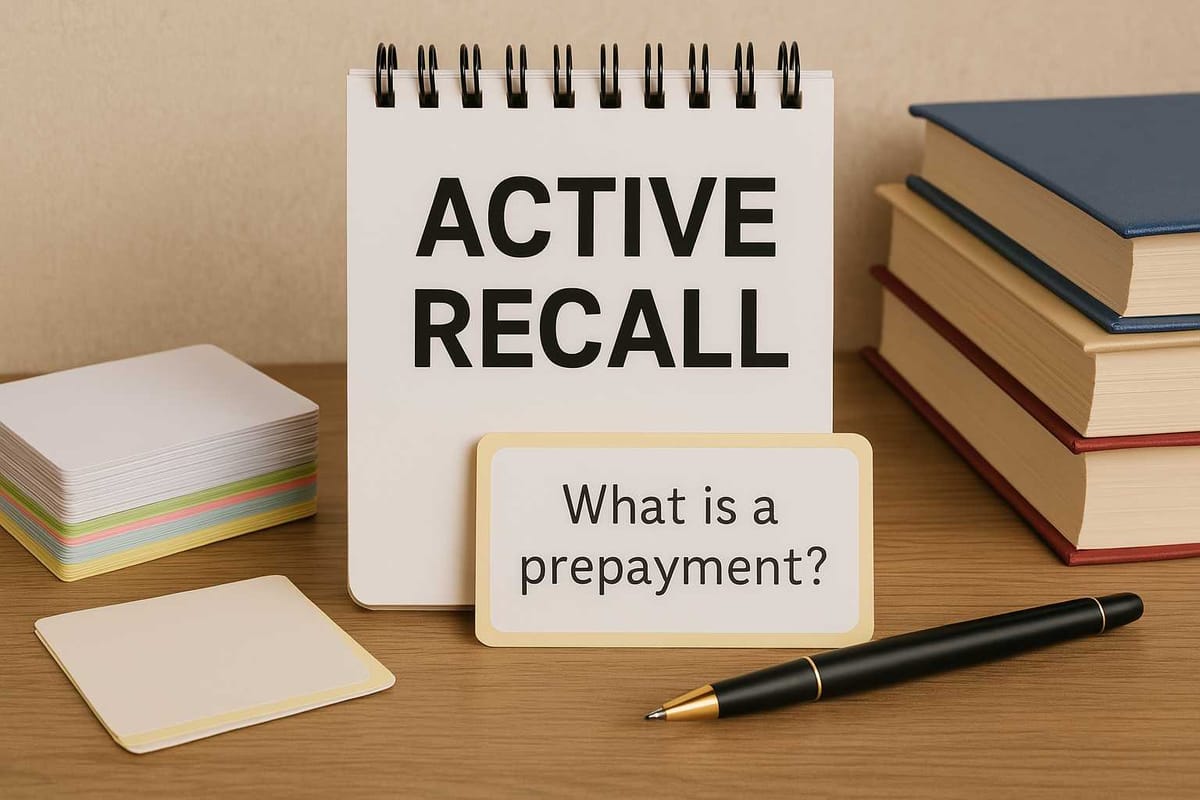The Reason Why Active Recall Is the Best Exam Strategy
The majority of students employ passive strategies like rereading notes or highlighting textbooks while getting ready for tests. However, science demonstrates that Active Recall is consistently superior to all other methods. Not only does this effective learning method improve memory, but it also fosters a more profound comprehension. What, then, is the best way to use active recall as a test tool? Let's go.
What Does It Mean to Actively Recall?
Actively recalling information from memory is a study method known as active recall. You attempt to recall the material without consulting your notes, rather than evaluating it. For instance, after finishing a chapter, you shut the book and attempt to record or utter aloud what you recall. Active recall takes many forms, including flashcards, practice exams, and self-quizzing.
The Science Behind Active Recall
The act of retrieving information reinforces the memory trace, as has been demonstrated by numerous studies in cognitive psychology. The testing effect demonstrates that recalling information helps to integrate it more thoroughly into long-term memory than merely reviewing it.
According to a Science study, students who used active recall remembered 50% more material a week later than those who just read through their notes again.
The Rationale for Why Active Recall Works
Makes You Think
Active recall requires effort, unlike passive learning techniques. This mental battle is what causes your brain to create more robust connections, allowing you to retain knowledge for a longer period of time.
Highlights what we don't know
You may immediately determine what you know and do not know by asking yourself questions. With this, you may concentrate more effectively on your study periods.
Enhances self-assurance and lowers worry
Frequent self-testing will give you a true picture of your development. The more you practice recall, the more confident you become, which makes test-day anxiety much easier to handle.
Promotes lifelong learning
Because active recall entails repetition over time, particularly when combined with spaced repetition, it facilitates the transfer of knowledge from short-term to long-term memory, which is perfect for cumulative assessments or real-world use.
How to Incorporate Active Recall into Your Study Schedule
The following are some realistic methods for including active recall into your regular study regimen:
Utilize Flashcards: Programs like Quizlet or Anki are excellent for making electronic flashcards that you can access whenever.
Practice Retrieval: Write down or explain what you just learned after reading, then close your book.
Educate Another Person: Simply talking through ideas with a friend—or even with yourself—is an effective way to remember things.
Use Past Papers and Mock Tests: To gauge your comprehension in an exam scenario, answer practice questions without consulting your notes.
Spaced Repetition: To improve retention, use spaced repetition in conjunction with active recall to review material at progressively longer intervals.
Typical Errors to Avoid
Merely rereading notes: This may seem helpful, but it has little impact on retention.
Too Much Information Overload: Trying to remember too much information at once can cause burnout. Concentrate on pieces of material.
No Review Schedule: Active recall loses its effectiveness in the absence of a regular review schedule.
Concluding Remarks
Studying is converted into an interesting mental exercise from a passive one through active recall. The idea is that hard work pays off, even if it's not always simple. Including active recall as a component of your study toolkit might be the game-changer you've been searching for if you're striving for high marks or just want to learn more effectively.
Begin using active recall right away to increase your chances of doing well on tests. Keep in mind that you should concentrate on learning wisely rather than learning more.


Post a Comment
0Comments